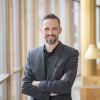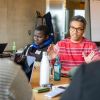What is the future of journalism?
“Breaking barriers, building bridges” – this is the motto under which international media professionals are engaged in discussions at the Global Media Forum 2025.
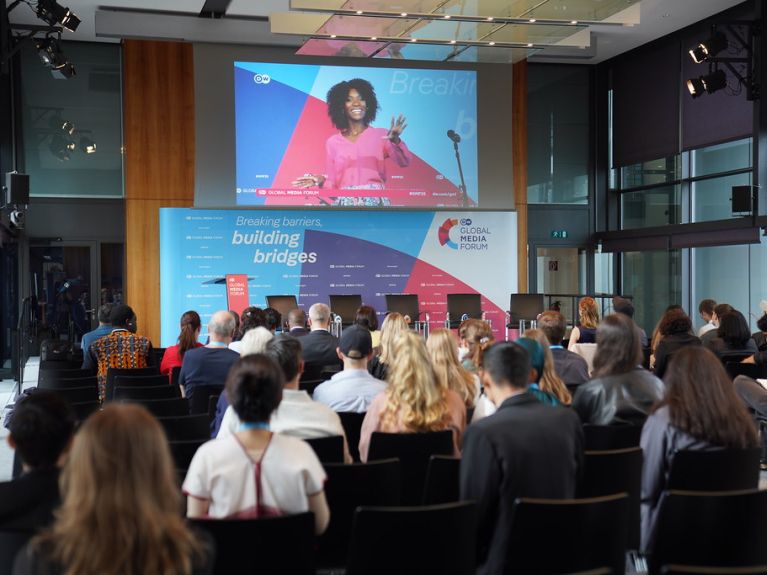
A babble of voices speaking many different languages can be heard. People from every corner of the world are jostling their way along the corridors of the Bundeskunsthalle - the Art and Exhibition Hall of the Federal Republic of Germany - in Bonn. The atmosphere is upbeat and dominated by one common cause: the desire to defend journalism against growing threats. Around 1,700 media professionals from more than 100 countries accepted the invitation of Deutsche Welle (DW) to attend the Global Media Forum, where they are engaging in exchange and jointly exploring solutions in line with this year’s motto of “Breaking barriers, building bridges”.
The future of journalism
In the view of Nathanael Liminski, the Minister of Federal, European and International Affairs and the Media in the state of North Rhine-Westphalia, the current era is characterised by “crises, war and transformation”. In view of these challenges, Liminski believes that one urgent question needs to be addressed: How can the future of independent journalism be secured? Concrete suggestions are made directly by the audience: using a QR code, they can contribute to the discussions on stage. “Free access”, “transparency”, “objectivity” or simply “money” are among the answers given by the audience in response to the question of how media can remain relevant.
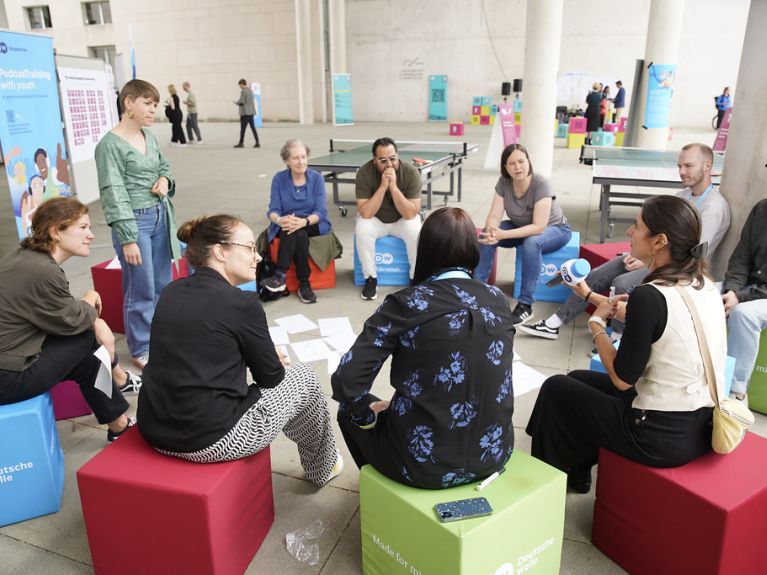
Challenges posed by artificial intelligence and disinformation
One of the greatest challenges facing journalism is how to deal with artificial intelligence (KI). This subject was illuminated from different perspectives in various panels and workshops on the first day of the Global Media Forum. Minister Liminski is in favour of regulating artificial intelligence, as he believes that authors need to be protected against AI. Furthermore, the uncontrolled dissemination of disinformation should be curbed.
Marta Kos, the EU’s commissioner for enlargement and European neighbourhood policy, drew an apt conclusion when looking at the algorithms used in social media: “While lies are cheap, uncovering the truth is expensive.” She describes disinformation as a “fundamental threat” to free and independent journalism and to democracies in general. The EU commissioner appealed to the audience: “If we want to win the battle of narratives, we also need to tell our story better.”
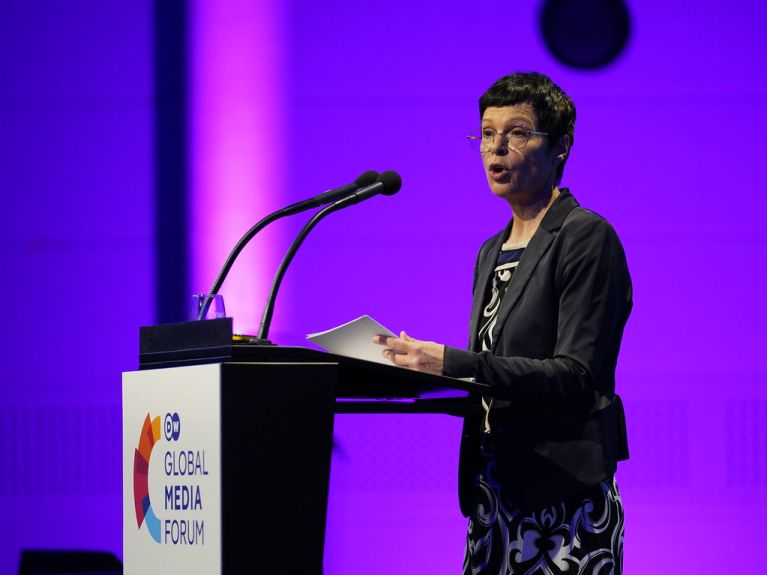
The right way to deal with AI
But what is the right way to deal with AI? In this context, the buzzwords are media and AI literacy - skills needed by media professionals and users alike. It emerged during the panel “Between efficiency and ethics - AI in journalism” that a sensible approach to AI can also give rise to opportunities. Canadian journalist and AI expert Nikita Roy explained how AI could be trained to meet an editorial team’s specific needs. This could save time in everyday editorial work or create new ways of interacting with users. The discussion participants agreed that the idea that AI might replace the work done by journalists was not acceptable.
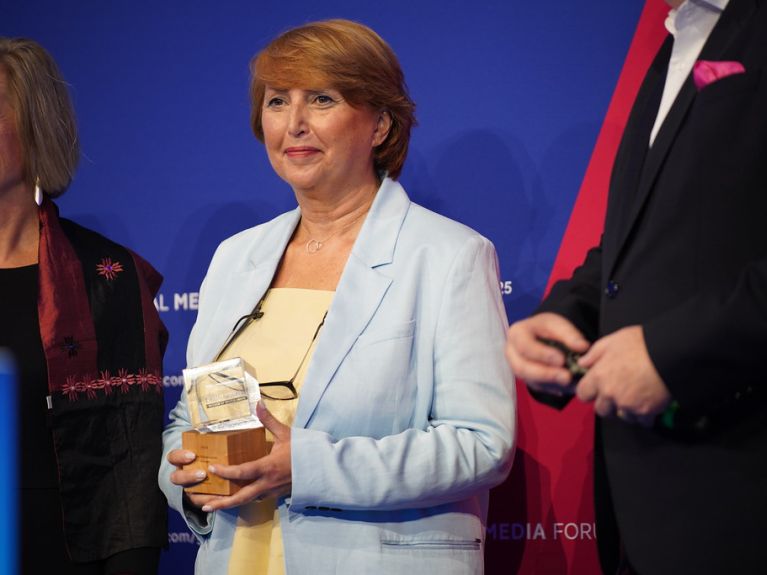
Freedom of Speech Award
During the Global Media Forum, the DW Freedom of Speech Award 2025 was presented to Georgian journalist Tamar Kintsurashvili. Kintsurashvili is the executive director and editor-in-chief of the Media Development Foundation and of the fact-checking platform Myth Detector. In these roles, she campaigns daily to increase media freedom in Georgia, despite threats against her and her family. In her acceptance speech at the award ceremony on 7 July 2025, Kintsurashvili stressed the collaboration with her colleagues: “This honour is not mine alone; it belongs to a team of professional journalists, fact-checkers and disinformation researchers who are on the front line of hybrid warfare.”
